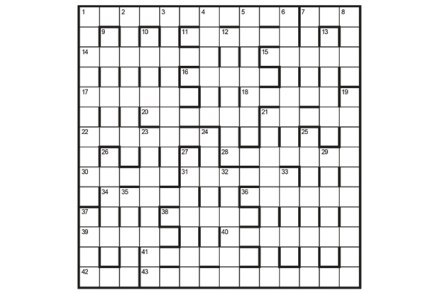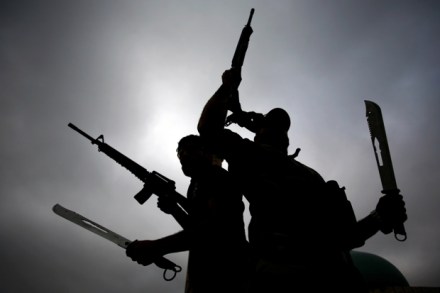2217: Poem
Unclued lights (one hyphened) are words from a poem whose subject appears in the completed grid. A clued light is an anagram of the poet’s name and must be shaded. Elsewhere, ignore an accent. Across 7 Pass through range heading west (3) 11 Any chap can empty nappy (6) 14 Gigs annoy heartless Giles (7) 15 Possibly enough said about dipsticks (5) 17 Dumpynose is punching person who’s still more acid (6) 18 Girl rebuffed game statesman (5) 20 Pearly queen in wild dance (6) 22 Instrument jingled needling capuchin (7) 28 Trumpet blasts needing prime instruments (7) 31 Mobile mat one folds (6) 34 Behave no longer




















